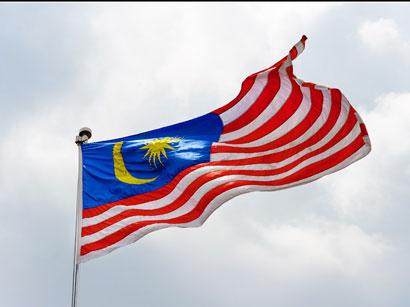The U.S. plans to laud Malaysia for improving efforts to combat human trafficking in an upcoming annual report just a year after blacklisting the Southeast Asian country for failing to protect men, women and children forced into modern-day slavery, The Associated Press reported.
A U.S. government source, who spoke on condition of anonymity because the report has not been released, says Malaysia will be upgraded back onto a watch list next week when Secretary of State John Kerry launches the annual U.S. assessment of how 188 governments around the world have performed in fighting the flesh trade and other forms of exploitative labor.
In 2014, Thailand and Malaysia were among 23 countries to receive the lowest ranking, "tier 3." Incumbents at that level included Iran, North Korea, Russia, Saudi Arabia, Syria and Zimbabwe.
Malaysia's upgrade is likely to be seen as recognition for working to identify, shelter and repatriate victims of trafficking, although widespread forced labor and worker abuses have been widely documented. Politically, it is sure to ameliorate diplomatic relations as the Obama administration negotiates the Trans-Pacific Partnership trade deal, which includes Malaysia.
U.S. Sen. Bob Menendez, D-N.J., said a politically motivated ranking would be a "perversion of the trafficking list."
"The deplorable human trafficking crisis in Malaysia merits a global cry for action and justice - not an attempt to sweep them under the rug for political expediency," he said.
Despite the expected upgrade, Malaysia has continued to face human trafficking issues throughout the past year.
In May, Malaysian authorities found abandoned jungle camps used by human traffickers that contained more than 100 suspected graves as well as pens likely used as cages for migrants, shedding more light on a regional trade that preyed on some of Southeast Asia's most desperate people.
The finding followed a similar discovery earlier that month by police in Thailand, who unearthed dozens of bodies from shallow graves on the Thai side of the border. The discoveries have exposed hidden networks of jungle camps run by human smugglers, who have for years held countless desperate people captive while extorting ransoms from their families.
Phil Robertson, deputy director of Human Rights Watch's Asia division, said the move says more about U.S. politics than Malaysian progress.
"Malaysia has little to distinguish its record on human trafficking since last year - its service to victims is poor, anti-trafficking law conceptually conflated with people-smuggling, and protection for vulnerable migrants minimal," he said.
Most of those who have fallen victim to the trafficking networks are impoverished refugees fleeing Myanmar and migrants from Bangladesh, part of a wave of people who have fled their homelands to reach countries like Malaysia, where they hope to find work or live free from persecution.
Thousands of those refugees are Rohingya, Muslims who have for decades suffered from state-sanctioned discrimination in Buddhist-majority Myanmar. Earlier this year hundreds of Rohingya on boats were turned away when they tried to disembark in Malaysia.US to boost Malaysia for addressing human trafficking
US plans to remove Malaysia from human trafficking blacklist, source says






